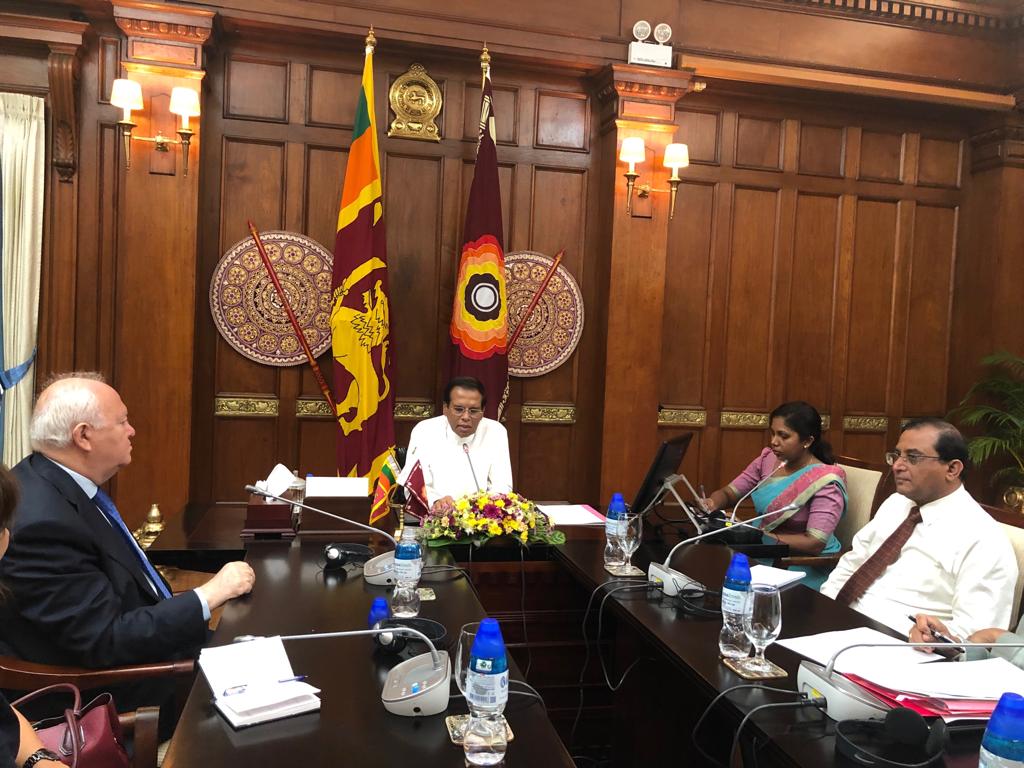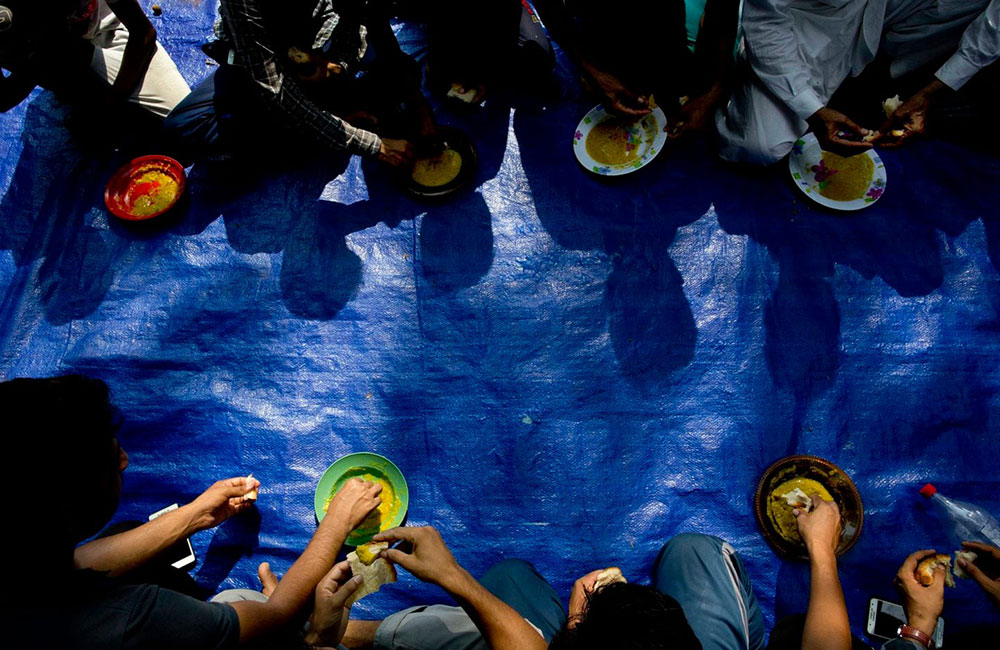Marking the first visit by any high-level United Nations (UN) official to Sri Lanka since the heinous terrorist attacks on Easter Sunday that targeted three Catholic Churches and three hotels, Miguel Moratinos, on behalf of the UN Secretary General and in his capacity as the High Representative for the United Nations Alliance of Civilizations (UNAOC) visited Sri Lanka on April 30.
Moratinos visited Sri Lanka to pay his respects to the people and the Sri Lankan government, and express the support of the United Nations for the government’s efforts in its fight against terrorism and violent extremism.
During his one-day visit, the High Representative met with the political leadership, religious leaders, representatives of the civil society. In his meeting with President Maithripala Sirisena, the High Representative conveyed to the President the condolences and solidarity of the UN Secretary-General and his personal deepest sympathies.
“You are not alone”, Moratinos said to the President Sirisena. On his part, President Sirisena expressed his gratitude and appreciation for the visit and support of the High-Representative. The plight of refugees
The plight of refugees
The High-Representative re-iterated that the UN stands ready to support those efforts to help in restoring harmony, unity and social cohesion and in this context, drew the President’s attention towards the urgent need to find an agreeable long-term solution to the problem of the asylum seekers and refugees in Sri Lanka to ensure their safety and well-being.
Many asylum seekers and refugees who have been temporarily placed in Sri Lanka have sought shelter at police stations after they were reportedly evicted by landlords under pressure from local communities who have turned their backs on them, local media reported.
It is also reported that some groups of migrants have been forced to return to mosques while others have either fled their homes under duress and threats, or been unable to leave their houses for fear of being attacked, according to media reports.
In this context, it is both timely and imperative to look into the refugee issue that has suddenly gained traction in local media as well as in social media platforms.
UNHCR in Sri Lanka
The office of the United Nations High Commissioner for Refugees (UNHCR) has been operating in Sri Lanka since 1987. As per the mandate of UNHCR, it is bound to provide international protection and humanitarian assistance to refugees, asylum seekers and IDPs.
An asylum-seeker is someone who says he or she is a refugee, but whose claim has not yet been definitively evaluated. A refugee is someone “who owing to a well-founded fear of being persecuted for reasons of race, religion, nationality, membership of a particular social group or political opinion, is outside the country of his nationality, and is unable to, or owing to such fear, is unwilling to avail himself of the protection of that country”.
Under its mandate, UNHCR decides which asylum-seekers in Sri Lanka qualify for international protection and should be granted refugee status.
Sri Lanka is not a State Party to the 1951 Convention relating to the Status of Refugees. State Parties to the Convention are required to provide “most favoured” or “national treatment” to refugees under various sectors in providing humanitarian facilities (i.e. housing, education, social security etc.).
However, Sri Lanka has signed an Agreement with the UNHCR on 7th December 2005, during the Rajapaksa administration, facilitating UNHCR (within its mandate) to carry out its international protection and humanitarian functions in Sri Lanka.
The status of the asylum seekers and refugees in Sri Lanka
The UNHCR shares a Monthly Report on ‘Refugees and Asylum Seekers in Sri Lanka” with the Ministry of Foreign Affairs, and other relevant line Ministries. The Report contains interalia, a list of detailed information and statistics on all refugees and asylum seekers in the country as at the end of each respective month.
Whenever the UNHCR Country office registers Asylum Seekers, their information is conveyed to the Controller General of the Department of Immigration and Emigration with copies to the Ministry of Foreign Affairs. The Ministry of Foreign Affairs, upon receiving the copies of such notifications, shares the same with the Ministry of Defence and Department of Law and Order (previously it used to share with the Ministry of Defence and with the Ministry of Law & Order). UNHCR, as per requirements, requests GOSL to inform UNHCR of any objections to the Asylum claims submitted by applicants, within 15 days of receiving notification from UNHCR.
In addition, the UN Division of the Ministry of Foreign Affairs, from time to time, convene stakeholder meetings between the relevant authorities/officials from the Department of Immigration and Emigration and UNHCR and other departments as required, to discuss issues that require attention.
Foreign Ministry sources added that in July 2017, a meeting was facilitated between the Department of Immigration and Emigration and UNHCR in order to develop a digital database of asylum seekers and refugees, where UNHCR agreed to provide necessary technical assistance, and to share the digital database they already use.
Islamic terrorism myth?
A common misconception, especially with the flawed view of Islam in some Western circles is to link terrorism and religion with damaging terms such as "Islamic terrorism." Such cowardly and inhumane perpetrators of violence and terror should not be used to tarnish any religion. Often overlooked is the fact that the biggest victims of terror attacks are Muslim themselves.
Quite simply, terror has no religion.

Leave your comments
Login to post a comment
Post comment as a guest